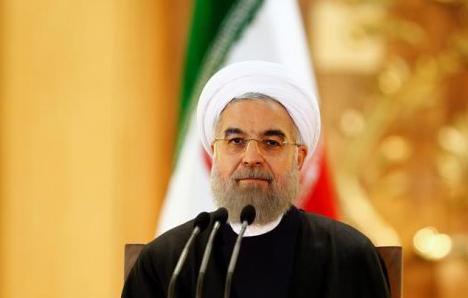Toni Negri in the face of the US’s warmongering
Is it the ’empire’ or else imperialism?
08/06/2009
The massive attacks against the WTC and the Pentagon back on September 11, 2001 and its aftermath -particularly, the growing interventionism and "unilateralism" of the US’s foreign policy- has raised an intense debate among the intellectuals and all the strands of politics worldwide. Many old (and not so old) ideas are being put to the harsh test of the new events. Toni Negri’s views -one of the most outstanding Autonomist thinkers-, which were outlined in his book Empire, are also facing a litmus test now. We took issue with his views in an earlier issue of this journal. (1)
In an interview published in the Italian daily Il Manifesto, on September 14, Negri sets out his point of view on the turn in America’s foreign policy in the wake of the blasts. He also puts forward some political alternatives to challenge the reactionary offensive launched by the US government. In Negri’s views, the attacks confirmed that: ’If New York could be bombed just as London, Berlin or Tokyo could…, a new global order [i.e., the ’Empire’] had come to life fully’. However, the American backlash would be a turn about in the situation. That ’is taking the shape of a contrary and regressive backlash with regards to the imperial tendency. A counter-drive, a violent imperialist backlash both within and against the Empire…’ (2)
Can we say that S11 has completely confirmed that the ’Empire’ has already climaxed? Furthermore, is the imperialist reaction unleashed by the American government at odds with the ’imperial tendency’? A correct answer to these questions is a key issue, since they should enable us to raise a correct policy to fight back Bush’s offensive.
Empire failed the test
We believe that the facts have given the lie to the views postulated by Negri in his book Empire, and this for the following reasons:
a) The attacks against the symbols of American economic and military might have shattered the notion of an ’Empire’ that ’lacks any territorial center of power and which is not based on fixed frontiers or barriers.’ According to Negri, the latter ’is a non-centered and de-territorialized governmental apparatus...’ (3), a new world order superseding the imperialist epoch.
As many commentators have already pointed out, the colossal impact of S11 was not just due to its catastrophic magnitude, the number of casualties or else the spectacular nature of the attack. Contrariwise, its significance lies in the fact that it hit the hegemonic power and the centerpiece of the imperialist system worldwide -the US. That turned S11 into a momentous event, a turnabout for international politics. If Bin Laden, Al Qaeda or whoever launched the attack had agreed to Negri’s views -i.e., there are no longer any outstanding centers of power and the ’Empire’ is a ’non-existent’ point spreading through an intangible web devoid of any hierarchical structure- they would have never hit those very real targets.
b) The new doctrine of ’pre-emptive war’ of the US government, which is putting it on collision course with Iraq, stands at odds with Negri’s description of the ’new type’ interventions engineered by the ’Empire’. Negri holds that ’the imperial armies are requested to intervene by one or more of the parties involved in an already existing conflict.’ In this way, ’The Empire was not born out of its own will, but rather it is called into being on the basis of its ability to solve conflicts. The Empire is thus brought to life and its interventions legitimated when they have been made part of the chain of international consensus which allows for a solution to existing conflicts.’
This description is nothing but an adaptation to imperialist propaganda, which justified the interventions of imperialism in the 1990s for the sake of a ’humanitarian’ excuse. The 1999 Kosovo War is a most telling example of that. Back then, both the US and its European NATO allies made their case for an imperialist war against Yugoslavia under the guise of halting the horrific ethnic cleansing of the Kosovars perpetrated by Milosevic. Negri’s theoretical schema proved helpless to assess the true geopolitical goals underpinning the US intervention in the Balkans, at a time when Europe’s dependence on the US’s political and military muscle was revealed once again. Nowadays, when both the rhetoric and the ways of American imperialism have shifted, the fallacious nature of such postulates is even more obvious.
How does the new National Security Strategy of the US fit into such a framework? President Bush himself claims that he pursues the goal of confronting ’the worst threats before they come up’. What shall we make of the threat of war against Iraq, which has been not only rejected by this country but also by the Arab bourgeoisies as a whole, and is hardly desired by most of the European powers? Evidently, a ’pre-emptive’ war waged by the US after S11 is at odds with the description postulating that ’the imperial armies are requested to intervene by one or more of the parties involved in an already existing conflict’ -as Negri characterized the military interventions in his book Empire.
c) The two previous questions lead us to a third issue at stake: the view holding the nation-state is in decline and in the process of being superseded by a new form of sovereignty, made up of a series of national and supra-national bodies acting in unison with a common logic -what Negri calls the ’Empire’. This vision goes hand in hand with that holding that ’globalization’ has brought about a new form of world government -a widespread belief in the aftermath of the Cold War. Blair himself was in his time a standard-bearer for such crusade, when he pompously announced the world his International Community Doctrine at the time of the first military NATO intervention in Yugoslavia.
Even before taking office, Ms. Condoleeza Rice, Bush’s National Security Adviser, clearly anticipated that the new American administration ’would proceed along the steady lines of national interest, not those of the interests of an illusory international community.’ (4) The US’s growing unilateral drive, along with Bush’s use of S11 to push ahead with an aggressive geopolitical strategy has sparked off the opposition of rival powers, thus throwing the so-called ’international consensus’ into disarray -America’s national interest was disguised in those robes during the Clinton administration. The display of international solidarity with the US on the part of the other powers after the attacks of S11, which legitimated the war against Afghanistan, have turned sour now one year later -never mind the rest of the powers eventually caves in, or lets the US have its way against Iraq at the UN Security Council out of fear or else prevarication.
Dialectics remains the key to understand imperialism
In an earlier issue of this journal, we pointed to the coincidence of many tenets of Empire with the notion of ’ultra-imperialism’, coined by Kautsky in the early 20th century as a result of a theoretical operation that overlooked the clashing interests and the dynamics of the actual states of the time.
In Negri’s views, once we have reached the stage of the ’Empire’, ’the class struggle impinges upon the organization of power unchecked. Having reached a world level, capitalist development is confronted directly with the multitude, without mediation. That is why the dialectics, or, in fact, the science of the limits and their organization, vanishes altogether. The class struggle, pushing the nation-state towards its own abolition and outgrowing the fetters it set up, poses the advent of the Empire as a bedrock for both analysis and conflict.’
Certainly, the thrust towards the internationalization of capital and the productive forces -objectively boosting a broader internationalization of the class struggle as well- has grown significantly in the last few decades. But Negri endows that tendency with an overpowering force and mistakes it for present-day capitalism, thus turning his approach into an abstract schema which precludes any likely mediation or limits imposed on it, one that does away with the contradictions or shortcomings enshrined in it and thus fails to envisage the contradictions at work in capitalist development.(5)
For Negri, those developments that just do not correspond with the already fully-fledged and unstoppable imperial thrust are mere trifles appearing as external phenomena completely alien to it. This leads Negri to regard the Bush administration in the following way: ’The group that has got to power with Bush is an exquisitely reactionary one, bound to a populist ideology rather than an ultraliberal one (6), pursuing the upholding of some mega-structures of American power such as the control of the energy and the development of the military industrial system. Those people have remained at the sidelines of the third industrial revolution and do not support it, but on the contrary, regards it with hostility since the New Economy is also in crisis...’ (7)
Certainly, we don’t harbor any doubt about the deeply reactionary character of the Bush administration. However, Negri uses the term in a literal sense, i.e., to refer to a government pursuing the restoration of things already abolished, which is set against innovation altogether, or else represents old-fashioned ways of power and rule. Quite on the contrary, the Bush administration represents those forces pushing American imperialism to new directions. Unlike Negri, The Economist, challenging the popular view of Texas as a state of cowboys and oil derricks, claims "Texas is the second most populous state after California and the second mega-state with the quickest growth after Florida, having doubled its population since 1960. Texas is one of the few states importing people both from the US and abroad. The wide resources available in the state and the weak regulations there have turned it into a hotbed for business. Corporate giants as American Airlines and J.C. Penney, a retail sales network, have moved their headquarters there. Austin, the state capital is the quickest growing high-tech hub in the country. Among the features of this state, the following can be mentioned: once a mostly rural state, now it harbors three of the ten largest cities in the US. A state once dependent on commodities has now switched to a highly diversified economy. The oil industry has been transformed, switching from the mere exploitation of oil to selling highly sophisticated know-how around the world. Flourishing high-tech companies like Dell, EDS and Texas Instruments, are absorbing highly educated professionals from the whole country... Texas is transforming itself, from Mississippi into California.’ (’The future is Texas. If you want to see where America is heading, start by studying Texas’, The Economist, latest 2002 edition)
Negri’s view of the rise of Bush is predicated upon the separation of the realms of the economy and that of politics. For him, the ’globalization’ is the worldwide reflection of the growing cooperation in the field of production -an autonomous process carried out by the ’multitude’ itself, in which capital has lost control of the productive process. (8) At this level, exploitation can only be maintained by checking the integration of the world, which is something inescapable, by means of political power (9) -i.e., by force.
In other words, Negri separates the process of internationalization of the economy -which he regards as a spin-off of the autonomous ethos of labor- from the mechanisms of political domination. This separation leads him to say that ’the markets might become the true obstacle for Bush’ -a most remarkable observation! As we explain in another article of this journal, Bush is a political development that represents a reactionary backlash to the break of the unstable equilibrium of the 1990s. At the same time, it also reflects an attempt by the US to impose an aggressive geopolitical strategy aimed at consolidating an advantageous position in the inter-imperialist competition with its rival powers.
This is what comes out of an analysis of present-day and actual imperialism. But Negri remains alien to that methodology and to these conclusions, since he throws dialectics out of the window. He deals with the inter-imperialist rivalry opposing the states to one another, and the big multinational corporations with them, by isolating it from the class struggle related to those still existent states, considered as permanent features of the capitalist system at the dawn of the 21st century.
S11 and the American backlash that followed, far from confirming Negri’s theses and a supposedly imperialist reaction within and against the ’Empire’ as such, show that the increasing internationalization of the last few decades has, on the contrary, exacerbated the contradiction opposing the ever-broadening development of the productive forces on one hand, and the social relationships of production on the other -which is in turn revealed by the very existence of national states themselves. The growing militarism and the heightened inter-imperialist tensions, are the clearest expression of that contradiction.
Political consequences
The theoretical schema designed by Negri in Empire leads him to reformist conclusions disguised by other radical ones. The former are have to do with his positive and celebratory assessment of the process of ’imperial building’, adapting himself to the ideology of the ruling class on ’globalization’ and its ’benefits’. The radical conclusions are those concerning the existence of mature conditions for communism -it was this that endowed Empire with a subversive tone in the face of the prevailing rhetoric holding that there is no alternative to capitalism.
As the international scenario changes, Negri’s theoretical perspectives lead him to forsake his more radical conclusions and to deepen his reformist orientation, one whose main thrust lies in an anti-Bush stance as opposed to a clear and consequent anti-imperialist strategy. He has gone on the record voicing his preference for the Democrats like a ’lesser evil’ with regards to the Republicans, has called for a new dialogue with the reformists, and harbors illusions in the development of the European Union.
At the time of the last November elections in the US, he stated that: ’If Bush wins or loses the elections will make a difference. Of course we all hope the Democrats to win, no matter how feeble and mean the alternative they might be able to offer.’ (10) This is nothing but a beautifying of the same imperialist party that launched the war on Kosovo under the Clinton administration, and which has also given its wholehearted support to all the measures taken by Bush in the wake of S11.
Here is another example of his political turn. He said that ’in the face of a return to barbarism, we need to know how to put up resistance, on a possible common ground with the reformists… The problem boils down to knowing how to make it work... How to fight against the war, what kind of alliances we should build with the reformist imperial aristocracies…’ The need for the broadest united front against an eventual attack on Iraq, even with reformist currents or parties that claim to oppose the war, is an obligation for the revolutionaries. However, we want to emphasize the political turn of Toni Negri, who has switched from open hostility against the trade unions themselves (not only their bureaucratic leaderships) and the traditional left parties, be them the Western Social Democrats or else Neo-Communists, to a new line aimed at a (strategic?) accommodation to those very same ’reformist imperial aristocracies.’
On the other hand, Negri claims that ’today, Europe is the place for any kind of political project. Also because it is a place with plenty of social forces -strata of the intellectual productive labor- interested in a new social organization. This one should be built from below, mobilizing the multitudes, so that a united Europe can be a ground for performing a subversive role within the global order.’ This represents a change vis-à-vis the theses espoused in Empire. There he stated that the continued American hegemony was predicated upon the power and the creativity of the US proletariat, ’where the US proletariat appears as the most subjective figure heralding the desires and the needs of the international or multinational workers in the most complete way’. The reactionary turn in US politics and Europe’s subsequent opposition to Bush’s unilateral course account for the shift in Negri’s expectations, who has now placed his bets on the Old Europe. (11)
Negri’s theoretical approach proves helpless to deal with the various types of domination and the turns in imperialist politics, a blunt instrument of no help to fight against them in a revolutionary way. The consequences of the inadequacy of his views for grappling with reality become even more evident in the face of the current aggressive course of American imperialism. Negri once hailed the unfolding of the ’Empire’, but now this is revealed as nothing but sheer political adaptation to the supposedly non-imperialist quarters of the world bourgeoisie. The political drift of one of the main mentors of the anti-global movement, akin to that of other intellectuals as well, is fuelling the disorientation and confusion of whole swathes of that movement in the wake of S11. The postulates on a new ’Empire’ should be cast aside then, and a coherently anti-imperialist program should be raised if we are to carry out a coherent revolutionary strategy against the war drive against Iraq, the so-called ’war on terrorism’ and US imperialism’s warmongering. And that program is no other than that of socialist revolution worldwide.
NOTES
1 Juan Chingo & Gustavo Dunga, ’Empire or Imperialism?’ in International Strategy N° 17 (Estrategia Internacional N° 17).
2 Il Manifesto, interview to Toni Negri by Ida Dominijanni, 14/09/02.
3 Antonio Negri & Michael Hardt, Empire, Spanish Edition.
4 Condoleeza Rice, ’Campaign 2000 - Promoting the National Interest’, Foreign Affairs, January/February 2000.
5 We should note that in the abovementioned interview, the journalist remarks -after listening to Negri speak about the ’novel’ nature of Bush- that Negri’s description ’is not a minor contradiction. It makes the process of building of the "Empire" much more convulsive than he envisaged it.’ (Il Manifesto, 14/09/02). Furthermore, in his last conferences, Negri himself has begun to soften his position, paraphrasing Gramsci when he remarks the ’no more’ for imperialism and the ’not yet’ of the ’Empire’.
6 This contradicts the goals set out in the National Security Strategy of Bush, which contains a whole chapter devoted to further the continuity of neoliberal policies that ’will bring about a new era of global growth through free market and the free trade.’
7 Once again, Negri’s theoretical schema fails the test of events in presenting the clique around Bush as hostile to the New Economy. The personal relationship of the Texas-based Enron’s CEO with the Bush clan is a most telling example. It ranked as the seventh largest US corporation before going bankrupt. In a recent book, this company is described like this: ’Enron represents the inroads of e-commerce in the realm of economic infrastructure, as long as Enron traded an entire series of items such as natural gas, electricity, steel... through the Internet.. Donato Eassey (from Merrill Lynch) sensed then [in June 2000] that ’Enron stands in a unique position to become the General Electric of the New Economy’.’ Vijay Prashad, Fat Cats and Running Dogs. The Enron Stage of Capitalism
8 This characterization is a result of the transformations in the organization of labor and the prevalence, according to Negri, of ’immaterial labor’. These have turned knowledge in the main means of production, one that cannot be alienated by the capitalists, thus granting the worker the unprecedented chance of controlling the productive process. This postulate overlooks the material conditions underpinning exploitation in a capitalist society relying on the private ownership of the means of production.
9 In his General Intellect, Constituent Power, Communism, Negri puts out the following view: ’The difference separating the current phase of development of the capitalist mode of production from previous ones is the fact that the social productive cooperation, previously brought about by capital itself, stands now as a foundation for all of its policies or, rather constitutes its very condition of existence...Therefore, capital can only appear as a political subject, as a State, as power. On the contrary, the social worker is the producer, prior to the production of any given commodity, of social cooperation itself... Through all the phases of the development of the capitalist mode of production, capital has always adopted the form of cooperation... Nowadays, the situation has changed completely. Capital has become a mesmerizing, spelling force, a ghost, an idol: around it revolve radically autonomous processes of self-valorization and political power alone can force them, with the carrot or the stick, so that they begin to subordinate themselves to the capitalist form.’ [our emphasis]
10 Il Manifesto, 14/09/02.
11 Many intellectuals are going down this road, some of them going much farther. That is the case of Walden Bello, one of the main critics of capitalist globalization, who hailed the standoff between Europe and the US as ’...a positive step for the majority of the world. This opens the possibility that the Europeans may begin to deal in a positive way with the problems of injustice and poverty in the developing world, dealing also with the structures of western rule that they are by an large responsible for. This paves the way for innovative global alliances that can be beneficial for most of the world, including the eventual creation of an alliance made up of Europe, Africa, Latin America and Asia against American hegemony. Of course, Europe has its own series of oppressive measures, such as the Common Agricultural Policy, which is one of the major causes of agricultural disasters in the developing world. Its corporations are as exploitative as the American ones and its restrictions on immigrants are too often more draconian than those imposed by Washington. However, the need to pursue alliances to oppose Washington’s unilateral thrust might provide an incentive to go for the reform of such institutions.’






